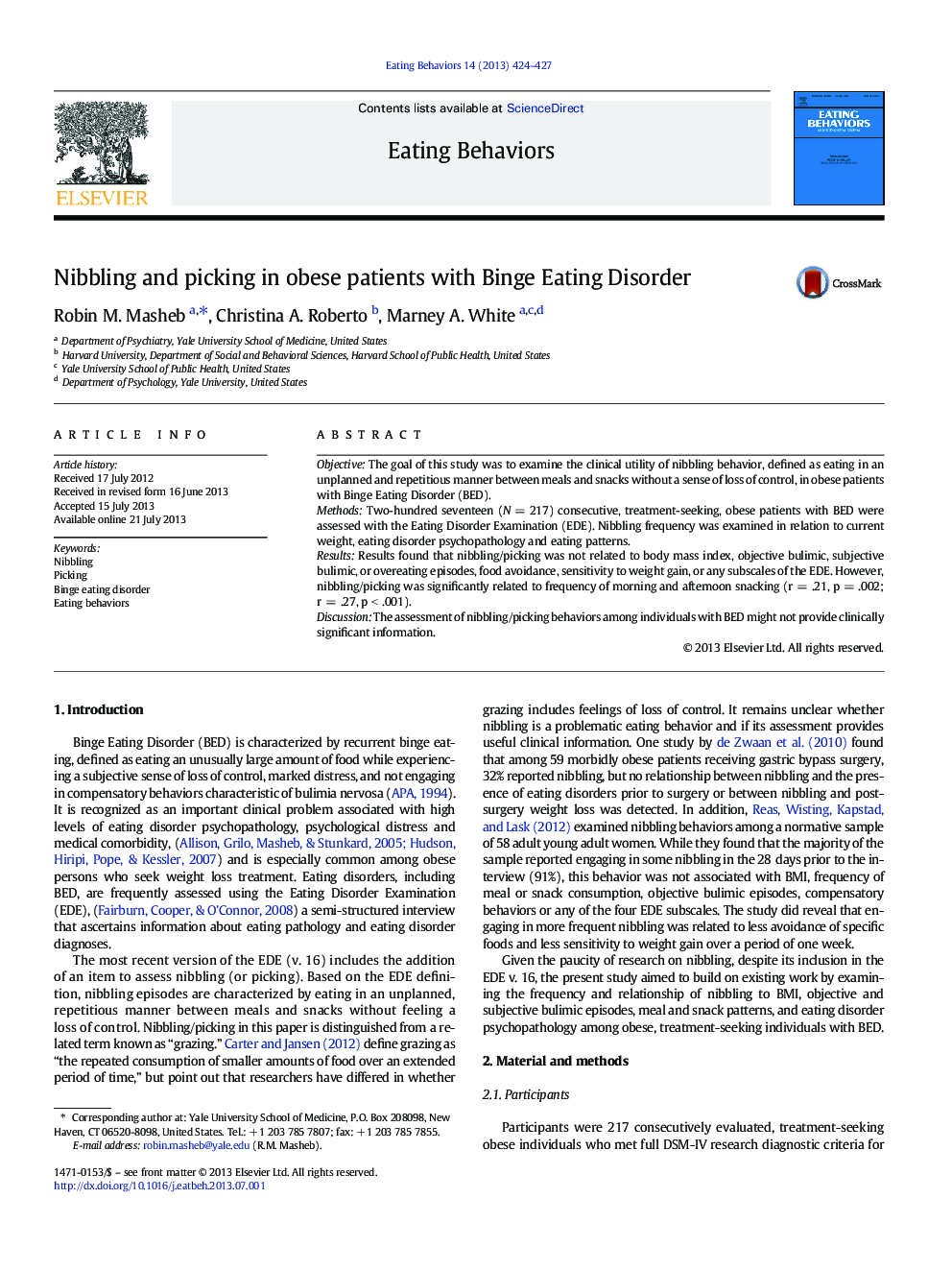| Article ID | Journal | Published Year | Pages | File Type |
|---|---|---|---|---|
| 906319 | Eating Behaviors | 2013 | 4 Pages |
•This study examined the clinical utility of nibbling behavior.•Nibbling is eating in an unplanned, repetitious way between meals and snacks.•Participants were 217 obese patients with binge eating disorder.•Nibbling was not related to BMI or disordered eating behaviors or cognitions.•Assessing nibbling among binge eaters might have little clinical utility.
ObjectiveThe goal of this study was to examine the clinical utility of nibbling behavior, defined as eating in an unplanned and repetitious manner between meals and snacks without a sense of loss of control, in obese patients with Binge Eating Disorder (BED).MethodsTwo-hundred seventeen (N = 217) consecutive, treatment-seeking, obese patients with BED were assessed with the Eating Disorder Examination (EDE). Nibbling frequency was examined in relation to current weight, eating disorder psychopathology and eating patterns.ResultsResults found that nibbling/picking was not related to body mass index, objective bulimic, subjective bulimic, or overeating episodes, food avoidance, sensitivity to weight gain, or any subscales of the EDE. However, nibbling/picking was significantly related to frequency of morning and afternoon snacking (r = .21, p = .002; r = .27, p < .001).DiscussionThe assessment of nibbling/picking behaviors among individuals with BED might not provide clinically significant information.
